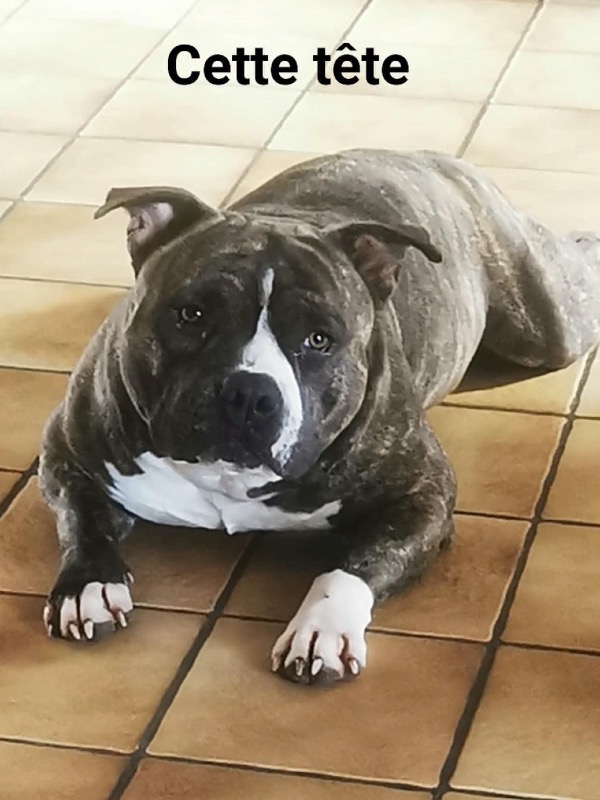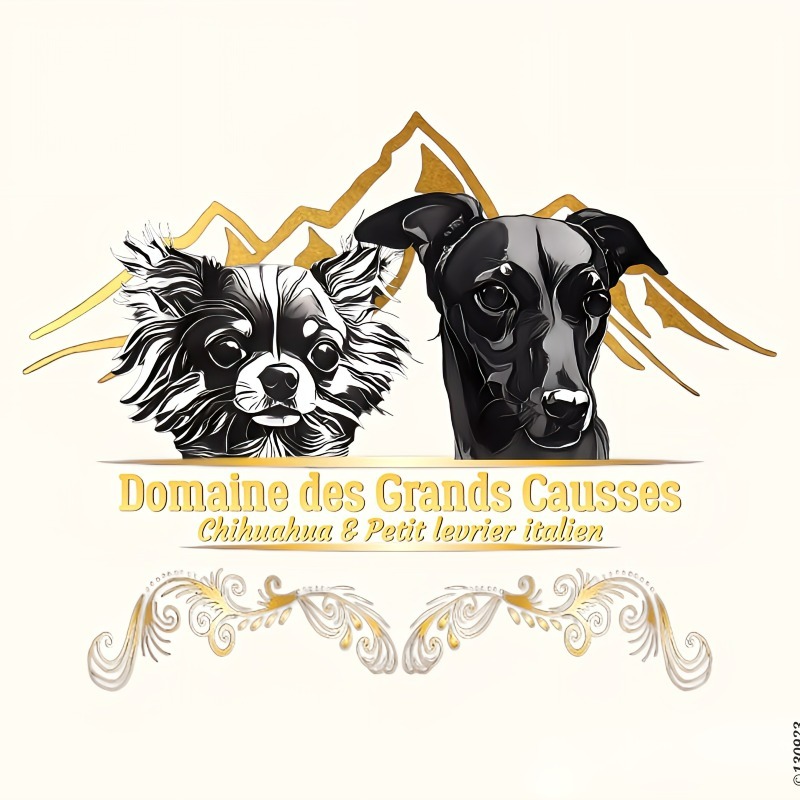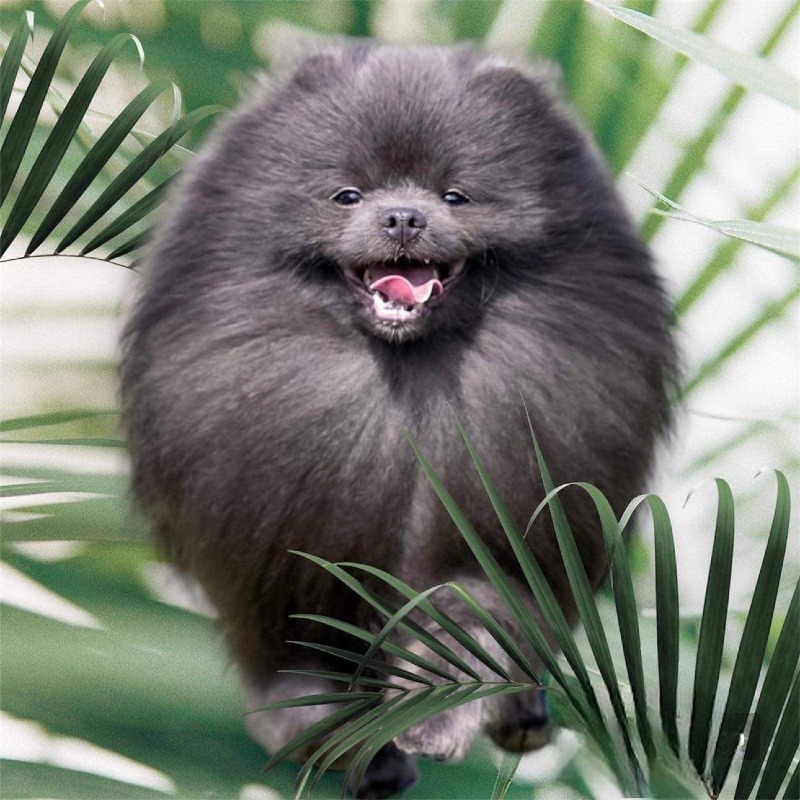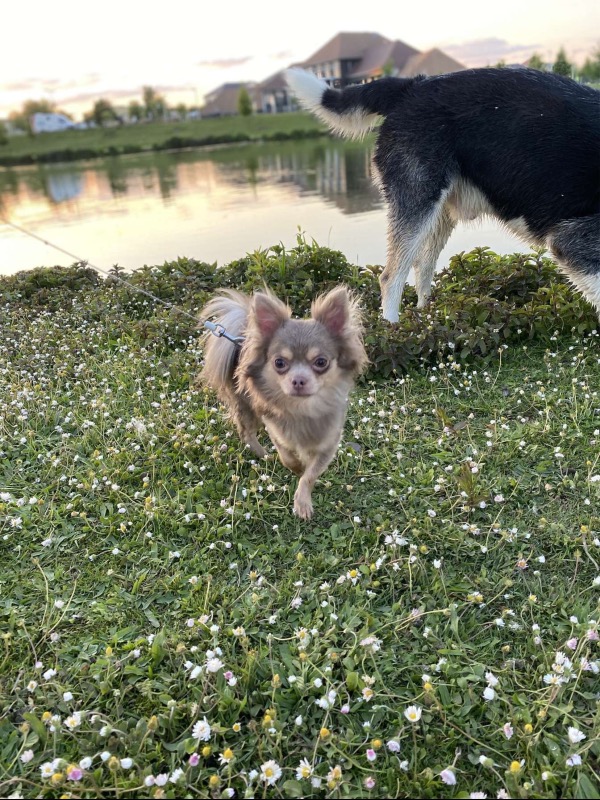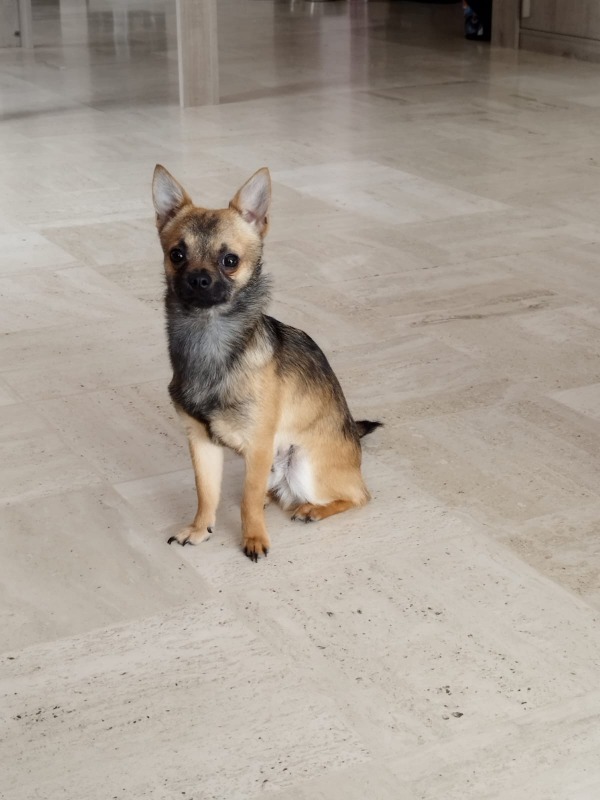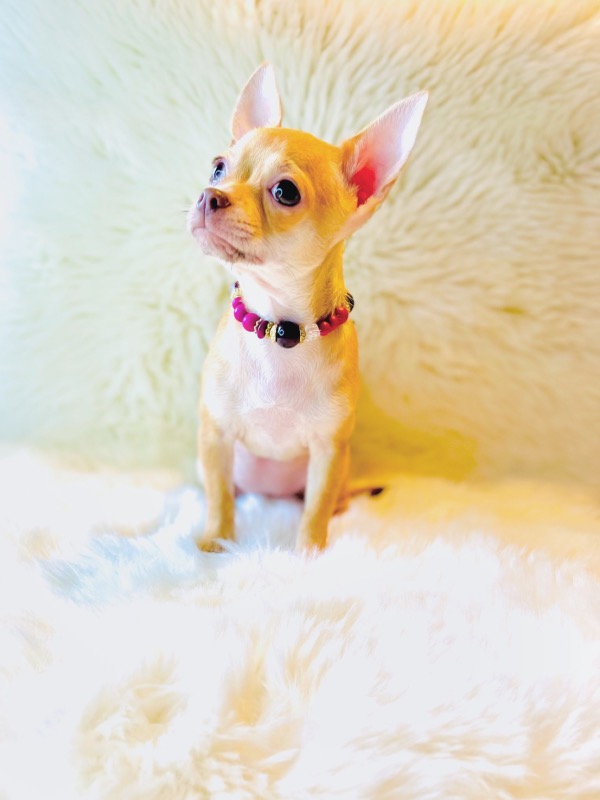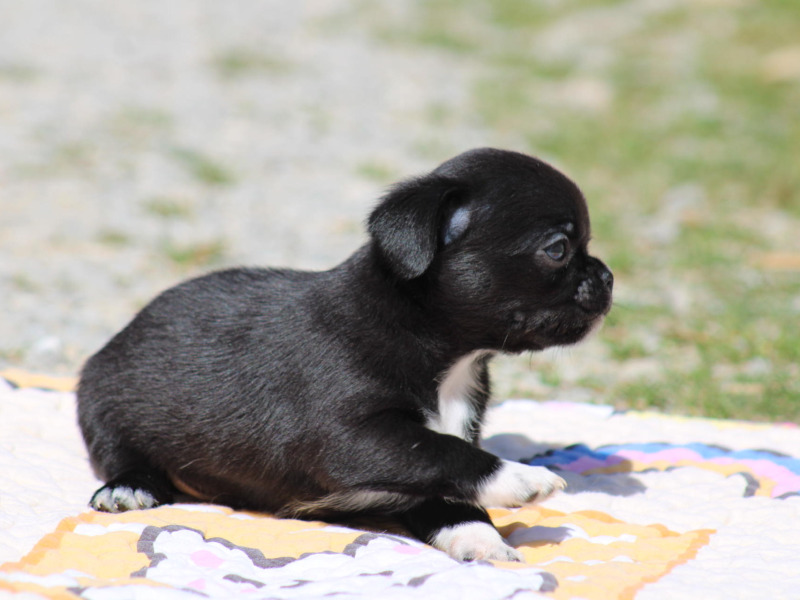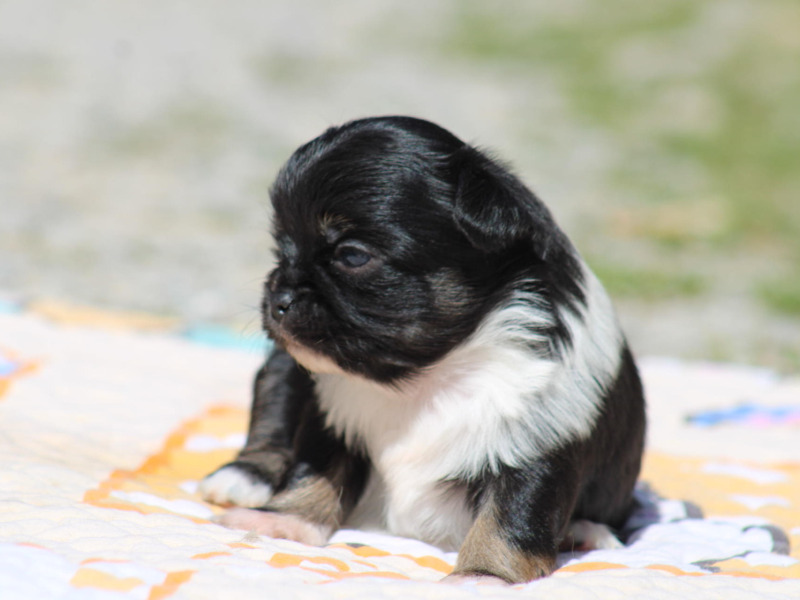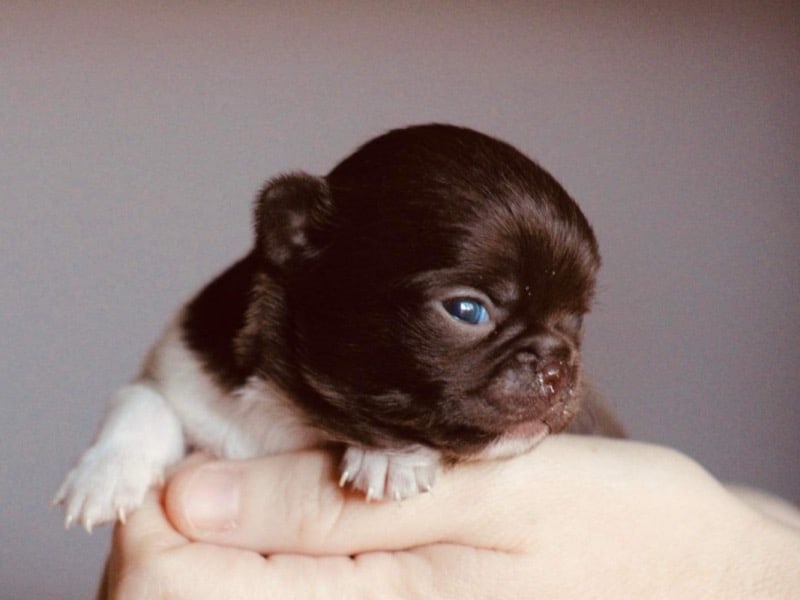Chihuahua
Welcome to our page dedicated to the breed of dog chihuahua!
Here, you will find all the useful information about chihuahua. This descriptive profile will allow you to discover the aspects of this breed. You can notably consult information about the average price, monthly and annual upkeep expenses, their health, name ideas, as well as their official recognition by competent authorities.
Explore this page to discover everything you need to know.
Overall description of the breed
The Chihuahua is without doubt the smallest dog in the world and certainly one of the oldest breeds, originating from Mexico and more precisely from the region where Chihuahua is the capital. The Aztecs and Toltecs were great admirers of this small animal, the result of a cross between two dogs that have been present on the North American continent for thousands of years. Some believe that it is a selection of techichis and tapeitzcuintles (a breed that has now disappeared).
Its demographic rise was noted at the end of the 19th century with an exceptional expansion in the United States which made it known at the international level, thereafter many subjects were exported in Europe where the race met the same popular craze. The International Cynological Federation registered the breed definitively on December 4, 1959, and the latest update of the official standard was published on September 4, 2019.
Small but strong! Don't be fooled by its fragile appearance and small size, the Chihuahua is a sturdy dog that enjoys an iron constitution. Its lines are harmonious and globally well balanced, more long than high, its body is inscribable in a rectangle. Very appreciated by the ladies, in particular for his featherweight, his owners love to take him in their arms to cuddle him all day long. His body is narrow and compact, solidly built and muscular, with a straight, firm topline, a lean chest and a deep chest in relation to his height at the withers.
The head is small, round with a short muzzle, a skull showing a nice apple-shaped curve and a clearly defined stop. The tail is of medium length, carried proudly, coming up at right angles when the dog is in action. There are two varieties of hair in the Chihuahua, the long and the short, both silky and glossy, lying flat on the whole body. All coat colours are permitted in the breed standard, except merle.
The Chihuahua is very sociable and particularly affectionate towards its social group, jovial and playful, it will appreciate very much to share time with all its family. Close, even fusional with its owner(s), it needs regular contact with humans to feel totally fulfilled, however, its education must be adapted to ensure that it does not fall into hyperattachment, which could lead to behavioural problems in adulthood.
Don't coddle him too much and tell yourself that despite his small size, in his head, he sees himself as a big dog... consider him as such, teach him to stay alone so that he doesn't develop anxiety when you're away. His natural friendliness hides a small dog that is distrustful of strangers, he will show himself to be "protective" when a situation is unusual and will warn you by barking profusely. Intelligent and gentle, they are a great everyday companion for young and old.
Adult: The Chihuahua will weigh approximately 1.1 to 5.5 lbs (0.5 grams to 2.5 kg) and will be about 6.3" to 7.9" (16 to 20 cm) tall.
Awareness of acquiring an animal
Each animal is a sensitive being, deserving love, attention and care.
When you choose to adopt an animal, you take on the responsibility of ensuring its health and well-being throughout its life.
To learn more about animal welfare, we invite you to consult our FAQ by clicking the button below:
Origins
The Chihuahua originates from Mexico, where its ancestors likely lived among the ancient indigenous peoples such as the Toltecs and Aztecs. It is named after the state of Chihuahua, Mexico, where it was discovered in the mid-19th century. The early Chihuahuas were likely used as companions and sacred pets by indigenous priests. Some theories suggest they descend from small Chinese dogs introduced to South America by Spanish or Chinese traders. The modern breed was developed by Mexican and American breeders, who worked to refine its distinctive characteristics. Chihuahuas are now cherished worldwide for their small size and lively personality.
History
The history of the Chihuahua is rich and fascinating. Ancient sculptures and artifacts found in Mexico show small dogs resembling the modern Chihuahua, suggesting that the breed has existed for centuries. The Aztecs and Toltecs are said to have domesticated these dogs, using them for both companionship and in religious rituals. With the Spanish conquest, the breed underwent changes and crossbreeding with other small dogs. In the 19th century, American tourists discovered these small dogs in Mexico and began importing them to the United States. The breed gained popularity and was officially recognized by the American Kennel Club (AKC) in 1904. Today, the Chihuahua is one of the most popular companion dog breeds in the world.
Standard
The Chihuahua breed standard stipulates that these dogs must be small, compact, and well proportioned. The head is a distinctive feature, apple-shaped with a well-defined stop. The eyes are large, round, and expressive, usually dark in color, but can be lighter in dogs with a light coat. The ears are large and erect, widely spaced. The body is slightly longer than tall, with a well-developed chest and straight back. The tail is of medium length, carried high, curved or in a half-circle with the tip pointing downwards. The legs are fine but muscular, with small and compact feet. The standard accepts both long-haired and short-haired chihuahuas.
Physical characteristics
The Chihuahua is the smallest dog in the world, weighing between 1.5 and 3 kg. Its height varies from 15 to 23 cm at the withers. There are two varieties of fur: short fur and long fur. Chihuahuas with short fur have a smooth and shiny coat, while those with long fur have a soft and slightly wavy coat. All colors and combinations of colors are accepted, including fawn, chocolate, black, white, blue, and tricolor. Their small size and slender silhouette make them particularly elegant and delicate dogs. Their round eyes and apple-shaped head are characteristic traits of the breed.
Character
The Chihuahua is a dog with a strong and dynamic personality. Despite its small size, it shows great boldness and a strong personality. It is generally very attached to its owner and can be possessive. It is alert and vigilant, making it a good watchdog despite its size. Sociable and affectionate, it loves to be the center of attention and can sometimes be jealous. It is intelligent and curious, making it easy to train, but it can also be stubborn. Well socialized, it can get along well with other animals and children, but its small size requires delicacy in interactions.
Life expectancy
Chihuahuas are known for their long lifespan, which generally ranges between 12 and 20 years. This exceptional longevity is due to their small size and good genetics. However, to maximize their lifespan, it is essential to provide them with regular veterinary care, a balanced diet, and appropriate physical activity. Their health must be closely monitored, especially for dental, cardiac, and joint problems that may occur with age. By taking care of these little dogs with attention and love, they can live a long and healthy life, bringing years of joy to their owners.
Exercise and activity needs
The Chihuahua, despite its small size, needs regular exercise to stay healthy and balanced. A daily walk of 20 to 30 minutes is usually enough to meet its physical needs. It also enjoys interactive games, such as ball or intelligence toys, which stimulate its sharp mind. Although it can adapt to apartment life, it enjoys exploring and sniffing during outdoor outings. It is important not to overwork it due to its small size and to monitor extreme temperatures, as it is sensitive to cold. An active and well-exercised Chihuahua is generally happier and less likely to develop undesirable behaviors.
Recommended diet
The diet of a Chihuahua must be balanced and adapted to its small size. It is recommended to give him high quality food, rich in protein and low in fat. Portions should be controlled to avoid overweight, as obesity can lead to health problems. On average, a Chihuahua needs 50 to 80 grams of kibble per day, divided into two meals. The monthly cost of food for a Chihuahua varies between 20 and 40 euros, depending on the brand and quality of the chosen kibble. It is also important to ensure that he always has fresh water available.
Training and obedience
The education of the Chihuahua must start from a young age to promote good behavior. Despite being small, it is intelligent and learns quickly, especially with positive reinforcement methods. Socialization is crucial for it to become a balanced dog, as it can be wary of strangers and other animals. Basic commands like "sit", "down", "come", and "no" should be taught with patience and consistency. It is also important to work on cleanliness, as small dogs can be more difficult to train at this level. A well-educated Chihuahua will be a pleasant and obedient companion.
Behavior with children
Chihuahuas can get along well with children, but precautions are necessary. Due to their small size and fragility, they can easily be hurt by rough or awkward handling. It is crucial to teach children to handle the Chihuahua with gentleness and respect. Additionally, Chihuahuas can sometimes be jealous and possessive towards their owner, which can lead to conflicts. Early socialization and careful supervision of interactions between the dog and children are essential to ensure a harmonious cohabitation. With clear rules and proper training, a Chihuahua can become an excellent companion for children.
Compatibility with Other Animals
Chihuahuas can get along with other pets, but it often depends on their early socialization and individual personality. They can sometimes try to assert their dominance, even towards larger animals. A gradual and controlled introduction is essential to ensure a good cohabitation. They can peacefully coexist with cats if they are accustomed from a young age. However, caution is needed with large dogs, as a Chihuahua can easily get hurt during too vigorous play. In general, good socialization and careful supervision allow for a harmonious coexistence with other pets.
Grooming needs
The grooming of the Chihuahua depends on the variety of its coat. For short-haired Chihuahuas, a weekly brushing is sufficient to remove dead hairs and maintain the shine of their fur. Long-haired Chihuahuas require more frequent brushing, two to three times a week, to avoid knots and tangles. A monthly bath is recommended for both varieties, using a gentle dog shampoo. The eyes and ears should be cleaned regularly to prevent infections. It is also important to trim the nails every month and brush the teeth several times a week to prevent dental problems.
Health
The Chihuahua is generally a robust breed, but it can be prone to certain health problems. Dental issues are common due to the small size of its jaw, requiring regular dental care. Chihuahuas can also suffer from luxating patella, a condition where the kneecap moves out of its normal position. Heart issues, such as mitral valve disease, are also common in older Chihuahuas. Due to their large eyes, they are susceptible to eye infections and injuries. Regular veterinary check-ups, a balanced diet, and appropriate exercise are essential for maintaining a Chihuahua's good health.
Average price
The price of a Chihuahua can vary considerably depending on various factors such as lineage, pedigree, breeder reputation, and region. On average, the cost of a pet Chihuahua ranges between 800 and 1500 euros. For a Chihuahua from champion lineages or destined for exhibitions, the price can reach 2000 to 3000 euros, or even more. It is essential to choose a reputable breeder who respects the breed standards and animal welfare conditions. Prospective owners should also budget for additional expenses for veterinary care, food, and accessories needed to welcome the new companion.
Expenses
Monthly expenses for a Chihuahua can vary, but on average, they range between 50 and 100 euros. This amount includes food, routine vet care, grooming, and accessories. Premium food costs around 20 to 40 euros per month. Regular vet care, including vaccines and deworming, can cost between 10 and 30 euros per month. Grooming, although minimal, may require some expenses for care products and grooming tools. Lastly, accessories like toys, beds, clothes, and pet health insurance can add additional costs.
Name ideas
Choosing a name for your Chihuahua can be fun and reflect their unique personality. Here are some suggestions: Choco, Bella, Max, Daisy, Gizmo, Lulu, Peanut, Coco, Rocky, Trixie, Gizmo, Lola, Milo, Zoé, Poppy, Simba, Pixie, Nala, Oliver, Roxy. These names are short and easy to pronounce, which is ideal for a small dog like the Chihuahua. Whether you prefer a classic, original, or pop culture-inspired name, the important thing is to choose a name that you like and that fits well with your companion's character.
Legislation and regulation
In France, the Chihuahua is not classified as a category dog, which means that it is not subject to specific restrictions regarding ownership. However, owners must comply with general regulations regarding dog ownership, such as the obligation to vaccinate against rabies, identification by microchip or tattoo, and keeping the dog on a leash in public places. Chihuahuas must also be registered with the Société Centrale Canine (SCC). It is recommended to check the current local and national regulations regarding pet dogs, as they may vary depending on municipalities and countries.
Official recognition
The Chihuahua is officially recognized by several cynological organizations around the world. In France, it is recognized by the Société Centrale Canine (SCC). In the United States, it is registered by the American Kennel Club (AKC). In the United Kingdom, it is recognized by the Kennel Club. Other recognition organizations include the Canadian Kennel Club (CKC) in Canada and the Fédération Cynologique Internationale (FCI) internationally. These organizations establish the breed standards and organize dog shows where Chihuahuas can be presented and judged according to their characteristics in accordance with the standards.
Pedigrees
Chihuahuas with pedigree generally come from recognized and registered breeders with official breed clubs. In France, the Société Centrale Canine (SCC) manages pedigrees and breed standards. In the United States, the American Kennel Club (AKC) offers pedigrees for purebred Chihuahuas. In the United Kingdom, the Kennel Club is the reference organization for Chihuahua registrations. In Canada, it is the Canadian Kennel Club (CKC) that handles it. The Fédération Cynologique Internationale (FCI) is the global organization that coordinates breed standards between different countries. These breed clubs guarantee the purity and conformity of Chihuahuas to established standards.
Destination and usage
The Chihuahua is above all a companion dog, appreciated for its small size and endearing personality. Thanks to its lively and alert nature, it can also serve as a guard dog, alerting its owners to the presence of strangers. Due to its intelligence and ability to learn quickly, it excels in agility and obedience competitions, even though its small size may pose challenges in some events. The Chihuahua is also an excellent companion for people living in apartments, the elderly, and families looking for a small, easy-to-handle and maintain dog.
Prohibitions
There are generally no specific prohibitions regarding the possession of Chihuahuas, as they are not considered a dangerous breed. However, some local regulations may restrict dogs, including Chihuahuas, from certain public spaces such as parks or beaches. Owners should always check the laws and regulations in their area to ensure compliance. In addition, it is forbidden to leave them unattended in vehicles or in extreme weather conditions due to their small size and sensitivity to temperatures.
Breeders of Chihuahua
Want to see more breeders of Chihuahua?
Check out the page of our directory listing all breeders of ChihuahuaClassified Ads of Chihuahua
Breed clubs of chihuahua
No of chihuahua breed clubs are currently registered on Preeders.
If you would like to highlight your breed club, sign up for free now and be the first to appear on this page.

